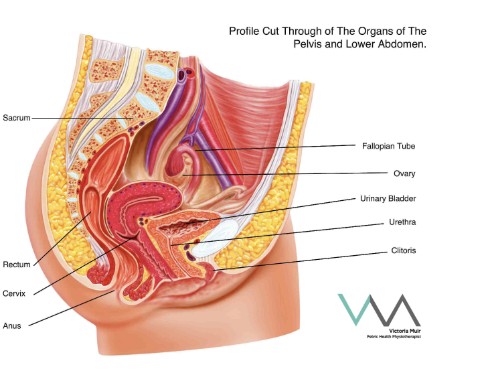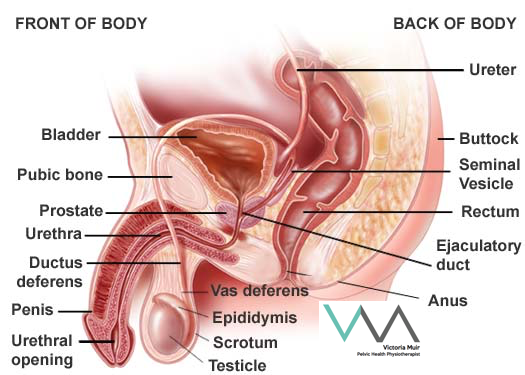Pelvic Floor Health in Plain Language
Symptoms
Bladder control problems
Inability to hold your wee during normal everyday activities or having to dash to the loo to pee.
Stress incontinence
You cough, sneeze, move quickly or bend to lift something and leak wee.. why? The pressure in your tummy suddenly increases causing you to leak wee as your sphincter muscle, the muscle around your water pipe (urethra) and your pelvic floor muscles are weak and no longer stop the wee being pushed out.
Urge incontinence
Rushing to the loo to wee…Why? The bladder contracts when it shouldn’t causing some pee to leak out through the sphincter muscles which close the bladder. Urge incontinence is a SYMPTOM and a SIGN not a diagnosis in itself.
PFH in plain language


Possible Causes
Bladder infection
A bacterial infection within the bladder or anywhere in the urinary tract, such as the bladder, kidneys, ureters (long tubes between the kidneys and bladder) or the urethra (waterpipe)
Bladder neck obstruction
The muscles at the bladder neck stop opening properly so you can’t pee completely. More common in men than women.
Women
Rare condition
The result of the bladder no longer being supported in its right position and pushing against the walls of the vagina
This is known as a ‘bladder prolapse’ or cystocele
Not life threatening but quality of life threatening
Not all prolapse need surgery but all need pelvic floor therapy
Men
Specialise in treating men following prostatic surgery
The prostate is a small gland in the male reproductive system. It surrounds the waterpipe (urethra) and is involved in the production of the seminal fluid.
This gland can enlarge with ageing. When it swells it squeezes the urethra and restricts urine flow. This can become so severe that the man is unable to pee
Bladder neck obstruction may also be a side effect of prostate surgery or treatments to treat prostate cancer such as radiation therapy.
Scar tissue from surgery can block the bladder neck

Bladder stones
Are crystallized minerals that form when concentrated urine is left in the bladder (less water and more waste product)
More common in men than women
Maybe due to dehydration or incomplete emptying of the bladder due to prostate problems, bladder problems or infections
Symptoms: Frequency to pee both in the day & night time, lower abdominal pain, burning when you pee, cloudy urine, inability to control urination due to urgency.
Spinal cord injury
Trauma to the back/vertebral column which contains and protects the spinal cord
Spinal cord is a bundle of nerves and other tissue and extends from the base of the brain
Victoria Muir
Private Practice
BEDFORD CONSULTING ROOMS
4 Goldington Road, Bedford.
MK40 3NF
TEL: 07510 916900
EMAIL: info@pelviccore.co.uk
Circle Health Group
Physiotherapy Department, Manor Hospital, Church End, Biddenham MK40 4AW
TEL: 01234 364252
EMAIL: victoria.muir@circlehealthgroup.co.uk
Domicillary visits available upon request
-
Contact Us
Have a query or wish to make a booking? Use our Contact page to get in touch.
